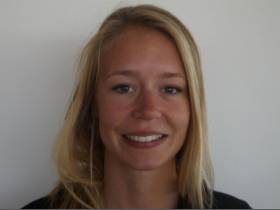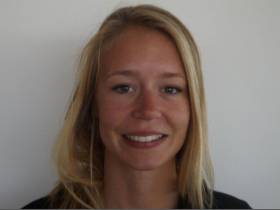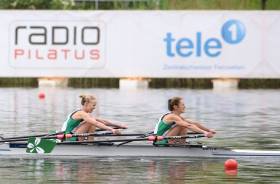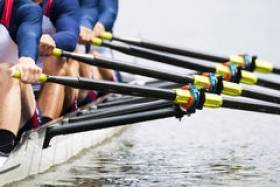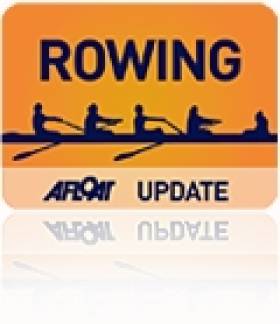Displaying items by tag: Boat Race
Lambe Makes History as Cambridge Win Boat Race
#Rowing: Claire Lambe became the first Ireland international to win a women's Boat Race today. The Olympic oarswoman was in the three seat of the Cambridge boat which defeated Oxford easily in a race dominated by Oxford’s awful start. Their number four woman, Rebecca Esselstein, could not clear the water with her oar at the start and by the time the crew recovered the race was gone. Cambridge started well and won much as they liked.
They set a new record for a women’s crew (18 minutes 34 seconds) since the women’s race moved to London three years ago. The Cambridge coach, Rob Baker, is the former Ireland under-23 coach. “They were ruthless in the way they executed today,” Baker said.
Claire Lambe in Cambridge Crew for Boat Races
#Rowing: Claire Lambe has been named in the Cambridge crew for the Women’s Boat Race on April 2nd. The Dubliner (26) will row in the number three seat for the light blues. Lambe represented Ireland at the Olympic Games in 2016, partnering Sinead Lynch in the lightweight double which reached the A Final.
Cambridge, who were beaten by Oxford in the last two years, have a very strong crew with a marked international aspect. “It’s the best crew we’ve had,” said Rob Baker, the Cambridge coach. Baker is a former Ireland under-23 coach.
O'Brien and Lambe in Cambridge Boat Race Squad
#Rowing: Claire Lambe and Sally O’Brien have been named in the Cambridge University women’s squad for the Boat Races. Lambe, who started rowing with Commercial, has represented UCD and Old Collegians. She competed for Ireland at the 2016 Olympic Games, partnering Sinéad Lynch in a lightweight double which reached the A Final. Sally O’Brien, who started rowing in Neptune, competed for Trinity and was captain of Dublin University Boat Club in 2014/2015. She played Gaelic Football at underage level.
The men’s and women’s Boat Races are on April 2nd. The chief coach of Cambridge University Women’s Boat Club is Rob Baker, the former Ireland under-23 coach.
Cambridge Master Conditions to Win Boat Race
#Rowing: Cambridge won the 2016 men’s Boat Race on the Thames today. Oxford started well, but in extremely difficult conditions, Cambridge established an early lead and kept a good rhythm down the long course, even as Oxford never gave up.
The women’s race was extraordinary. Oxford won, but in what Oxford women’s boat club president Maddy Badcott called “insane conditions”, Cambridge took in so much water that they almost sank. They somehow kept going and finished.
UCD Rowers Target Seventh Consecutive Gannon Cup
The Gannon Cup Committee have announced the arrangements for the 2014 Dublin University Boat Races between Trinity College Dublin and University College Dublin. The Colours rowing races will this year take place on Sunday, March 16th, in association with the official St Patrick’s Festival. The races will be contested on the River Liffey from O’Connell Bridge to St James’ Gate Brewery. The senior men's race (The Gannon Cup) is set for 11 o'clock and the senior women's race (Corcoran Cup) 10.30. The programme will commence at 9:30am with the novice women racing for the Sally Moorhead Trophy, followed by the novice men’s race for the Dan Quinn Shield at 10am.
A winter of extreme weather conditions has led to the cancellation of the majority of Rowing Ireland events, making it hard to predict the outcome of what promises to be a very exciting series of races.
For Susannah Cass, who will row in the seven seat of Trinity's Corcoran Cup crew, this is just the first test in a summer of rowing adventures. Susannah will be racing across the Irish Sea in the Celtic Challenge race in May, before competing in the world’s first Pacific Ocean rowing race – a 2,400 mile challenge from California to Hawaii. Meanwhile, in the UCD crew, the Gilligan sisters will be hoping to keep the Corcoran Cup in the family, as Aoife enlists her sister Ruth’s help in defending the title.
The senior men's race will have its 66th staging on Sunday. The Gannon Cup was founded in 1947 in memory of former UCD captain Ciarán Gannon, who lost his life serving in the Royal Army Medical Corps in Burma in 1944. There were no races in 1957 and 1958. UCD have dominated the event in recent years and will be hoping to make this their 7th consecutive win with the help of a strong crew of promising young athletes including World Under-23 silver medallist Niall Kenny. Trinity hope the return of coach Nick Dunlop, whose record includes a number of convincing Gannon Cup wins, turns the UCD tide.
Trinity won the coin toss hosted at Leinster House by Taoiseach Enda Kenny. They chose to race on the north station in both the men’s and women’s races.
The university boat races are an annual event on the River Liffey echoing the world famous Oxford/Cambridge University Boat Race in London. In 1980 Trinity were presented with the Corcoran Cup as winners of the inaugural women’s boat race; however, UCD responded strongly to this initial defeat and currently lead the series by 21 wins to Trinity’s 13. Races for novice men and women were introduced in 2004 and 2005 respectively.
Spectator buses will follow the races and depart from the O’Connell Bridge.
Program of events:
9:30am The Moorhead Trophy – Novice Women (holder Trinity)
10:00am The Dan Quinn Perpetual Shield – Novice Men (holder UCD)
10:30am The Corcoran Cup – Senior Women (holder UCD)
11:00am The Gannon Cup – Senior Men (holder UCD)


























